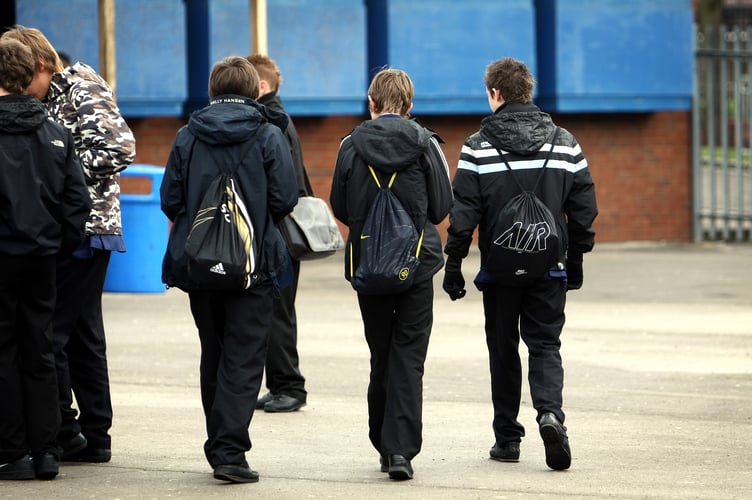Somerset schools reported a record number of suspensions in the autumn term last year, new figures show.
Experts said the substantial increase in pupil suspensions across schools in England is due to deteriorating mental health, unmet special educational needs and a lack of funding in local services.
They called on the Government to invest in early intervention services “to stop things spiralling into crisis for children”.
Department for Education figures show there were 3,390 suspensions of students at Somerset schools during the 2022-23 autumn term – up from 2,756 across the same period the year before.
This was the highest number of any term since comparable figures began at the start of the 2016-17 academic year.
Nationally, there were more than 247,000 suspensions during the autumn term last year – a record high and a substantial increase on almost 184,000 in the 2021-22 autumn term.
Geoff Barton, general secretary of the Association of School and College Leaders, said: “This increase in suspensions mirrors what we are hearing from schools about a rise in challenging pupil behaviour since the pandemic.
“That is partly associated with the pandemic itself and the sense among some pupils that normal rules no longer apply, but it is also more deeply-seated in deteriorating mental health, unmet special educational needs, lack of funding and erosion of family support services over a longer period. It is putting huge pressure on school leaders and staff.”
In the 261 schools in Somerset, the most suspensions (2,846) were given at secondary schools, while there were 479 at primary schools and 65 suspensions at special schools.
In England, the overall suspension rate was 2.96, meaning there were 296 suspensions per 10,000 students. This was higher for schools in Somerset, where the rate was 4.71.
Mr Barton added: “Early intervention is the key to preventing behaviour issues spiralling to the point of suspensions and exclusions.
“But doing that requires a commitment on the part of the Government to sufficient investment in schools and local services. That is sadly lacking at present.”
Permanent exclusions were also on the rise last year, with 3,100 students expelled from schools during the autumn term – 1,000 more than the year before.
In Somerset, 28 pupils had to look for a new school after being expelled.
Iryna Pona, head of policy at The Children’s Society said: “Exclusion must be a measure of last resort. When children exhibit changes in behaviour, the priority should be understanding and addressing the underlying causes.
“To do this effectively, schools must be equipped with the right resources and training.”
A Department for Education spokesperson said: “We back heads to use suspensions and permanent exclusions where required as part of behaviour management, so they can provide calm, safe, and supportive environments where both pupils and staff can work in safety and are respected.
“However, we are clear that permanent exclusion should only be used as a last resort and should not mean exclusion for education.
“We have issued updated statutory guidance making clear that early intervention should be put in place where pupils are at risk of being permanently excluded and entering alternative provision, and have invested £10 million in the Behaviour Hubs programme to support schools to improve behaviour.”




